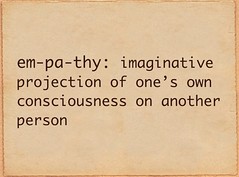“The really important kind of freedom involves attention, and awareness, and discipline, and effort,
and being able truly to care about other people and to sacrifice for them, over and over,
in myriad petty little unsexy ways, every day.
That is real freedom.
That is being taught how to think.
The alternative is unconsciousness, the default setting, the “rat race”
the constant, gnawing sense of having had and lost some infinite thing.”
― David Foster Wallace, This is Water
I was just reading this morning that the average person processes approximately 60,000 thoughts throughout the day.¹ Wow, that is a lot. Furthermore, 80 percent of those thoughts are negative.¹ Wow, that’s a lot. According to essentially every self-help book spilling off the shelves at Barnes & Noble, more optimistic people lead healthier lives. They will often choose to eat healthier foods and will avoid smoking and binge-drinking. What about those who work in fields rife with rejection and struggle? Obviously there is a need to inject more joy and contentment into ourselves. As we near the end of 29 Days to Diva (#29daystodiva), I thought that this is one of the most important challenges of the whole month because it takes the most consistent and solitary work of all.
Your day 22 challenge is to be kind to yourself.
I have written many posts on the Sybaritic Singer that are motivational in tone. For what I really want is to bolster your sense of self-esteem and self-worth so that we can get to the bigger picture. When I perform with you or review your performance on stage, I want to be caught up in the music and the emotion. I refuse to be mired in posturing and insecurity and I tire of performers that cannot “let go” of themselves on stage. Not that I find it at all easy to move past these negative emotions; I just want us to try to be free from them.
Let’s take the David Foster Wallace quote above and use it to focus on areas that we can be kind to ourselves.
Attention
Turn your attention and focus to the positive. Anthony Robbins wrote, “of the 3,000-plus words in the English language relating to human emotions, 2,086 are dispirited.” Focus on putting yourself in environments and around people who are good to you. Do activities that help you foster focus and serenity like meditation, yoga, or other relaxation techniques. Integrity is when your actions align with your values. Pay attention to your values and then spend your time and your energy accordingly.
Louis Pasteur is said to have coined the phrase, “Fortune favors a prepared mind,” in response to colleagues who were mocking his discovery of pasteurization as pure luck. Your career as a singer is not based on luck. It is with attention and mindfulness that you come to it everyday and continue to pursue your goals.
Awareness
A healthy awareness of your strengths and weaknesses will help you be more kind to yourself. You can stop fretting about having to be “better at everything.” Constantly striving for perfection will never feel as good as you think it will because there will always be something at which you have to be better. Knowing your weaknesses can help you identify opportunities to learn and grow in those areas. Be aware and celebrate your small victories and achievements – this will feel much more positive. Self-awareness will also help you receive and comprehend feedback. Do not waste your time fighting that feedback. Use it in your self-reflection and add it to your mini-goals. Also, be aware of your needs in life. Needs will inspire motivation, but when needs are unmet they can prompt frustration, conflict, and stress. Be the one who can understand and meet your own needs.
Discipline
Following the 29 Days to Diva (#29daystodiva) challenges is a form of self-discipline. You are completing small, sometimes boring, tasks to reach a larger goal. Julie Andrews is quoted, “Some people regard discipline as a chore. For me, it is a kind of order that sets me free to fly.” It takes incredible self-discipline to do the work of solitary practice that one needs to become a diva. There is a lot of unglamorous work that happens in the practice room. Self-discipline is running through technical exercises instead of just plowing through “Non più mesta” time after time. It is this self-discipline though that unlocks your freedom as a singer.
Part of self-discipline is accountability. Much has been said and written recently about the decline of accountability. One simple and easy place to look for accountability is in rehearsal. Have you ever heard, “well, that person messed up their line so I couldn’t sing mine.”? That person is not taking responsibility for the work they have put into learning their music. Your preparation and performance is your own. You wouldn’t want anyone to take sole credit for your brilliant moments in performance – don’t make them take the blame when you aren’t at your best.
Effort
People are seldom happier, says psychologist Mihaly Csikszentmihalyi, than when they’re in the “flow.” This is a state in which your mind becomes thoroughly absorbed in a meaningful task that challenges your abilities. Yet, he has found that the most common leisure time activity — watching TV — produces some of the lowest levels of happiness.
To get more out of life, we need to put more into it, says Csikszentmihalyi. “Active leisure that helps a person grow does not come easily,” he writes in Finding Flow. “Each of the flow-producing activities requires an initial investment of attention before it begins to be enjoyable.”²
 Empathize
Empathize
Holding a grudge can only worsen your mental well-being. You will bring yourself down by holding onto grievances and transgressions of the past.
In his book, Five Steps to Forgiveness, clinical psychologist Everett Worthington Jr. offers a 5-step process he calls REACH. First, recall the hurt. Then empathize and try to understand the act from the perpetrator’s point of view. Be altruistic by recalling a time in your life when you were forgiven. Commit to putting your forgiveness into words. You can do this either in a letter to the person you’re forgiving or in your journal. Finally, try to hold on to the forgiveness. Don’t dwell on your anger, hurt, and desire for vengeance.³
One things singers know how to do is socialize. We are talkers, by nature. Use these abilities to foster friendships with your colleagues. Do not worry about becoming best friends. Just apply your ability to empathize by sharing kind words and a supportive presence.
Also, empathize with your audience. Invite them into a space that you have provided. This space is what they have been searching for all day without knowing. They want a place to interact with their emotions. You are not going to tell them what they are supposed to feel. You are simply welcoming them into a place to feel.
Finally,
always remember that you are already “doing it.” You are already an opera singer. The rest is just business and work. Be kind to yourself so that you may be kind to others, whether it be your colleagues, your audience, your friends, your family, your pet – whatever. When we treat ourselves with compassion we may perceive the world around us as more compassionate. Wouldn’t that be the best?
In what ways will you be a self-compassionate singer? In what ways will you be more kind to your colleagues? Share and share alike in the comments below.

